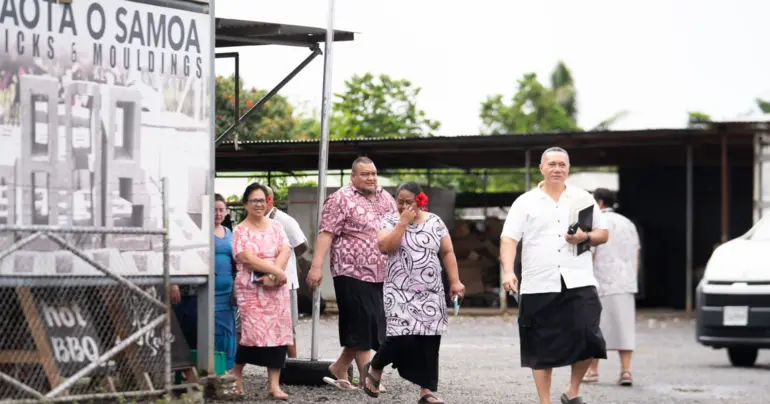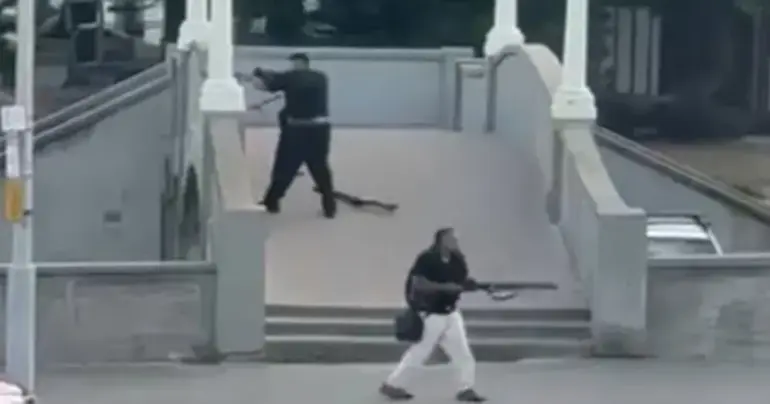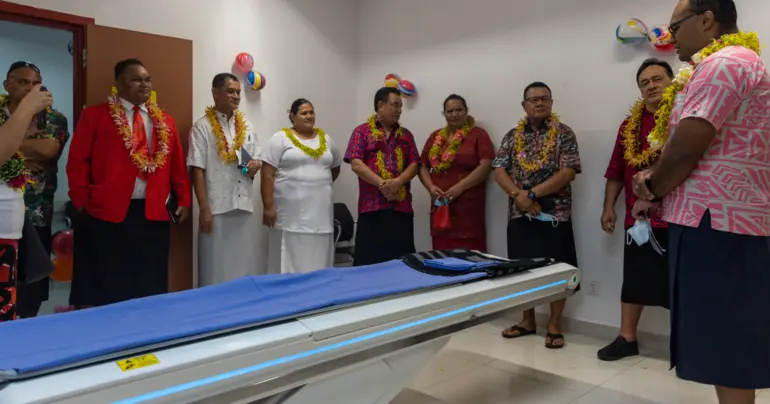Change to policing culture must continue
Samoa’s commitments to tackling gender disparity are more than a simple numbers game, especially when it comes to frontline policing.
Our international commitments to achieving equality for women in key decision-making roles across the workforce are well known. We are signatories to major treaties such as the Convention on the Elimination of All Forms of Discrimination Against Women (C.E.D.A.W.).
But an article in Sunday’s edition (“Top cop reveals gender challenges at work”) showed the depth of the challenges that lie before us.
Our Deputy Police Commissioner, Papalii Monalisa Tiaki-Keti, is a trailblazer in her field: the first ever Samoan woman to achieve such a post.
In her seventeen years in the service there is not much she has not seen and, unfortunately, that includes the sting of discrimination from her own colleagues.
Speaking at a conference for young women professionals on Thursday, Papalii shared the story of her unlikely rise through Police ranks with the hope of inspiring others.
Rising through what has traditionally been a male-dominated field did not come easy for the Deputy Commissioner, even though she holds a Master’s degree in transnational crime from Australia’s University of Wollongong.
Papalii recalled a meeting at which even though she was the highest ranking officer present, she was still asked to prepare tea.
Increasing the number of women police officers has benefits that extend beyond fulfilling gender equality quotas. Policewomen bring different qualities to the job and are an invaluable asset when it comes to tackling some of the most serious and persistent criminal and social problems.
Of the nation’s roughly 900 sworn police officers some 282 are women, the Deputy Commissioner said.
At a shade under one-third these numbers are impressive and distinguish Samoa when compared to its international peers.
Equally so was the revelation that a total of half the police force’s executive positions were held by women officers.
“The Ministry has evolved so much over the years,” Papalii said.
Much of the credit for this increase in women’s representation in crime fighting must go to the nation’s recently retired former top cop, Fuiavaili'ili Egon Keil.
Papalii has previously said that the number of women in the force doubled under the former Commissioner’s tenure.
Fuiavailiili walked the talk on the issue of promoting gender equality in a field that has long been regarded as an exclusively masculine domain.
It was under his tenure last year that an historic milestone in the Samoa Police Service’s graduating class for 2020 were women.
And when it was revealed by this newspaper that the previous Government had overturned a recent decision to extend both Fuiavailiili and Papalii’s contracts, the then-Commissioner spoke out only about the talents of his deputy and her critical role in the force. (Her contract was quickly extended for three years shortly after this news broke).
When his legacy is considered, his progressive and proactive stance on women police officers will be one of the most significant aspects of his legacy.
There has been extensive research on the effect that women have when deployed in the uniform and on the frontline and the verdict is in: they improve the quality of policing and help promote a culture of community oriented policing.
International research has found that women cops have far better interpersonal communication skills; their presence correlates strongly with fewer incidents of violent escalation and members of the community relate to them with greater ease.
In Samoa having more women bearing the badge poses another obvious benefit.
We are currently witnessing a significant spike in cases of domestic violence and abuse. At the end of last year, it was reported that the number of such cases reported to police had doubled in a single year.
As we have written in these pages before, it is highly unlikely that we are witnessing a sudden epidemic of violence against women and girls in their homes.
The most likely explanation for the rising figures is a change in community attitudes towards tolerance of such crime.
In a study released ten years ago, the United Nations found that half of women in Samoa had experienced some kind of domestic abuse in their lifetime.
More shockingly, a landmark report into the issue by the Ombudsman found that a shocking 70 per cent of women believed that it was acceptable for a husband to beat his wife in certain circumstances.
Initiatives such as the shelters provided by the Samoa Victim Support Group are essential services for women who have suffered trauma at the hands of those close to them.
But the most important measure in the campaign to end this scourge will be preventative and changing attitudes about the acceptability of violence.
Continuing to have women well represented on the frontline of the police force will be essential to making victims feel safe to speak out.
But ensuring that they command the most essential quality any law enforcement officer requires - respect - both among their peers and on the streets, will truly be indispensable.










